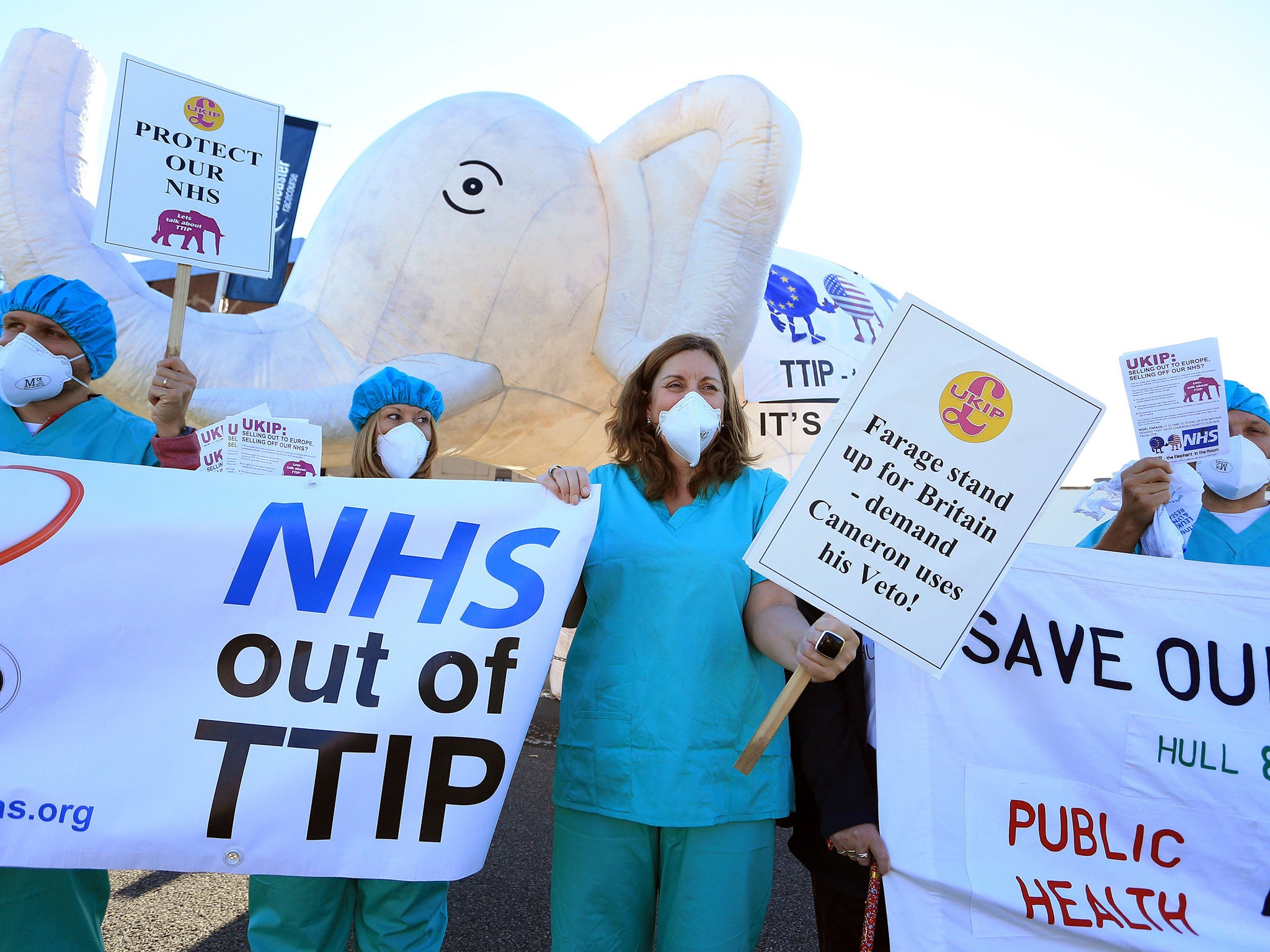Don't believe the scaremongering myths - TTIP is nothing to be afraid of
David Cameron’s pledge this weekend to put “rocket boosters” behind TTIP is a welcome sign that politicians in the UK realise the importance of what’s at stake

Global summits can sometimes be short on action and long on rhetoric, to the extent that those in the real world often pay little attention to what are seen by many as mere talking shops. However, last weekend’s G-20 meeting produced some action which will reassure businesses that politicians share their sense of urgency in making progress with the transatlantic free trade agreement.
The commitment undertaken by the likes of David Cameron and Angela Merkel to speed up negotiations over the US-EU trade deal, colloquially known as TTIP, is a welcome recognition of the fact that time is indeed of the essence. Business is firmly in favour of TTIP, but its continuing support should not be taken for granted.
The Institute of Directors has just released a survey of its members showing that business leaders overwhelmingly back the Transatlantic Trade and Investment Partnership. Nine out of ten IoD members want to see a deal which tackles both tariff barriers and regulatory challenges to doing business with – and in - the United States.
But in a sign that some are starting to become frustrated with the pace of negotiations, nearly half said they wanted the EU to focus on a targeted TTIP to expedite an agreement. Under a third still wanted to see a more comprehensive deal, irrespective of the time needed to agree it.
Some uninformed quarters claim not to see the need for a free trade agreement with the US, given that tariffs are relatively low in some areas compared with other, emerging markets. But for a number of important UK industries, tariffs do remain startlingly high – and not just in the big business automotive sector either.
After years of decline, the British textile industry is making comeback, with Lancashire manufacturers leading the way. They face up to 40 per cent import duties in the US, making market access a significant problem for the SMEs who are helping to boost textiles’ resurgence in the UK. For this industry in particular, TTIP could have an important role to play in Britain’s reshoring battle to bring jobs back home.
But business also gets that a significant amount of the benefits which stand to be won from TTIP derive from removing the non-tariff barriers which make trading with and in the US such an unnecessary headache. 60 per cent of IoD members think this should be the most important aim of TTIP. Contrary to the scaremongering myths being peddled by a number of groups, this does not mean reducing regulatory standards.
It’s about cutting down on bureaucracy and red tape around customs procedures. It’s about removing the need for double testing where standards are similar. It’s about making the US as easy a place to set up your company as the rest of the EU, so that the Atlantic doesn’t seem like such a huge barrier to cross. For critics of the agreement, and for those who want to turn TTIP into a political football, these are quite dry and technical points. But they’re points borne out of reality and it’s time that our political class and media elite woke up to the potential benefits of this agreement, and stood up to the scaremongers.
Bringing the debate back to these practical levels, explaining what concrete benefits free trade has brought to date, is where business has an instrumental role to play. Making it easier to trade overseas facilitates company expansion, which in turn brings jobs for workers and to the British economy. This is the message we want to convey and which we are well-placed to do. Indeed, we are currently undertaking a case study project to highlight what practical challenges businesses face in doing business with the US, and which TTIP could help overcome.
The debate around securing an “exemption” for the NHS in TTIP is an unnecessary red herring owing to the standard reservation clause for public services in all EU free trade agreements, which keeps decisions about supply provision as the ultimate preserve of national governments. But it is not the job of business to make these arguments, and so the Coalition – and the Labour party, too - have a duty to step up to tackle the misleading claims around TTIP head on. The misleading, negative narrative being set up desperately needs an informed and passionate rebuttal.
David Cameron’s pledge this weekend to put “rocket boosters” behind TTIP and take the fight directly to those clouding the debate with irrelevant half-truths is a welcome sign that politicians in the UK realise the importance of what’s at stake. This country has a proud tradition of being an open, outwards-looking liberal economy. Europe’s economic stagnation would be made permanent by a backwards slide into introspective protectionism. TTIP is an important part of the battle for prosperity, and Britain now needs to lead.
Alexandra Renison is Head of Europe and Trade Policy at the Institute of Directors
Join our commenting forum
Join thought-provoking conversations, follow other Independent readers and see their replies
Comments
Bookmark popover
Removed from bookmarks